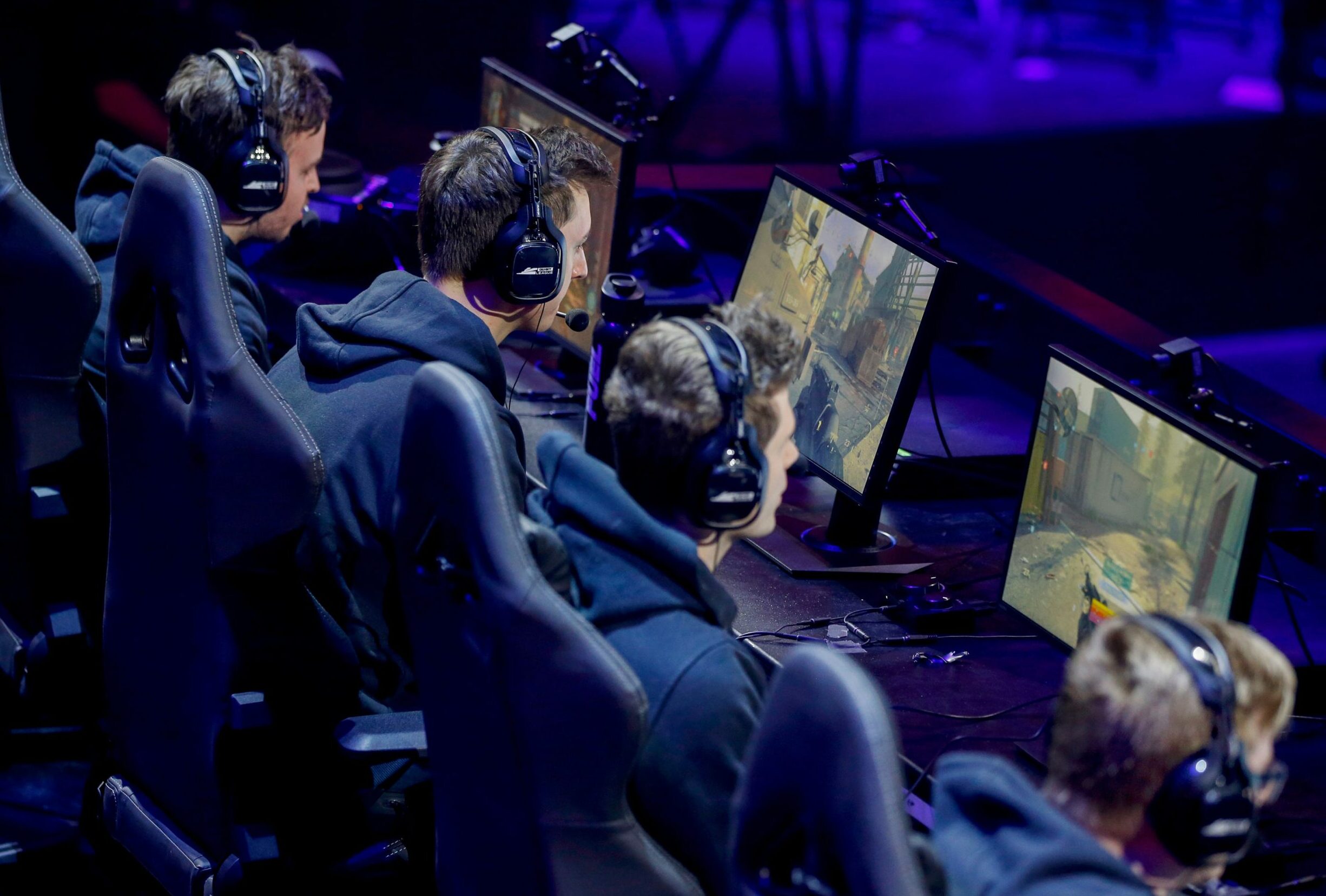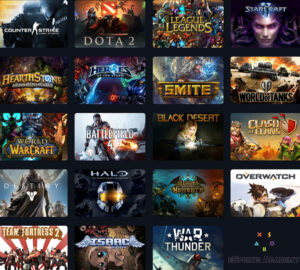
The roots of competitive gaming can be traced back to the early days of gaming culture in the 1970s. The first-ever video game competition took place at Stanford University in 1972, where students competed in a game called Spacewar. However, it wasn’t until the rise of the internet in the 1990s that competitive gaming began to evolve into a mainstream phenomenon. The internet allowed players from around the world to compete remotely, and today, some middle and high schools even have their own esports teams. As a result, esports has grown into a massive industry, with professional teams, leagues, and tournaments around the world.
The emergence of professional players and teams has played a significant role in the growth of the esports industry. As competitive gaming became more popular, players began to form teams and compete in organized tournaments. Today, esports tournaments can attract millions of viewers and offer substantial prize money to the winners. The increasing number of people who play video games has also contributed to the growth of esports. As a result, investors, brands, media outlets, and consumers are all paying attention to the world of competitive gaming.
The growth of the esports industry has been significant, with the industry boosting economies as well as top players. According to a report by Newzoo, the global esports market was valued at $1.08 billion in 2021 and is projected to reach $1.62 billion by 2024. However, there are also challenges facing the industry, such as the slow rate of return on investment for traditional sports owners who have invested in competitive gaming. Nonetheless, esports is a rapidly growing industry that involves competitive video gaming, and it has a bright future ahead of it.
The different types of ESports games and their popularity
The world of esports has seen a significant rise in popularity in recent years, with more people tuning in to watch video game competitions on platforms like Twitch. Esports, which are organized around the competitive play of digital games, have grown into a billion-dollar industry with professional teams, leagues, and tournaments around the world. There are various types of esports games with different mechanics, including first-person shooters, multiplayer online battle arenas, and fighting games. These games often require players to possess a combination of quick reflexes, strategic thinking, and teamwork to succeed.

Esports games can be categorized into individual or team-based games, with each type requiring different skills and strategies. Individual games, such as fighting games and racing games, require players to compete against each other one-on-one. In contrast, team-based games, such as League of Legends and Overwatch, require players to work together as a team to achieve their objectives. Effective communication and teamwork are essential for success in team-based games, and players must be able to operate as a cohesive unit.
The popularity of esports games varies across different regions of the world. For example, League of Legends is particularly popular in Asia, while first-person shooters like Call of Duty and Counter-Strike: Global Offensive are more popular in North America and Europe. Additionally, esports games are increasingly being used in the convergence of sports and gaming, with traditional sports owners investing in competitive video gaming. As the esports industry continues to grow and evolve, it is likely that we will see new games and trends emerge in the world of competitive video gaming.
The impact of ESports on the gaming industry and society as a whole
The rise of E-Sports has had a significant impact on the gaming industry, with the economic impact of the industry being one of the most notable effects. The industry has grown rapidly in recent years, with the increasing number of people who play video games being one of the main drivers of this growth. As a result, global investors, brands, and media outlets are increasingly investing in the industry, leading to a projected growth in the industry’s market value. In fact, the fast-growing E-Sports industry is not only boosting economies but also the top players. However, it is important to note that traditional sports owners who have invested in competitive video gaming have reported that the money is not flowing in as quickly as expected. Nonetheless, the economic impact of E-Sports is undeniable, and it is an industry that is likely to continue to grow and evolve in the coming years.

The increasing acceptance and recognition of E-Sports as a legitimate form of competition and entertainment is another significant impact of the industry on society. With the rise of live-streaming platforms for gamers like Twitch, more people are watching video game competitions, and events are attracting millions of viewers. In fact, a report by Newzoo suggests that by 2023, E-Sports will have an audience of 646 million viewers. E-Sports has also become a part of popular culture, with players competing in different video games such as League of Legends. This increased acceptance and recognition of E-Sports has led to a shift in societal attitudes towards video gaming, and it is now seen as a legitimate form of entertainment and competition.
The potential for E-Sports to become a future Olympic sport is another significant impact of the industry. The 6 Olympic Summit held in 2017 concluded that “competitive ‘esports’ could be considered as a sporting activity and the players involved prepare and train with an intensity which may be comparable to athletes in traditional sports”. While E-Sports is not currently recognized as an Olympic sport, it has been included in other international multi-sport events such as the Asian Games. The inclusion of E-Sports in such events highlights the growing recognition of the industry as a legitimate form of competition and entertainment. It will be interesting to see how the industry continues to evolve and whether it will eventually become a recognized Olympic sport.







